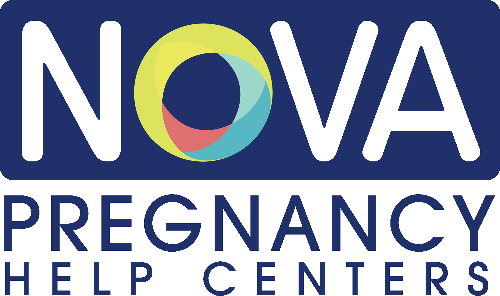What is the Abortion Pill?
A positive pregnancy test can be quite a shock if you didn't plan on getting pregnant. You may feel upset, scared, and even angry when you find out. These are all normal feelings when you're dealing with an unplanned pregnancy. It's a confusing time, and you may think of getting an abortion, something you never thought you would do. You may wonder about the abortion pill. Here is some information about the abortion pill to help you with this big decision. NOVA Pregnancy Help Centers is available to answer your questions about abortion or the abortion pill. No matter what your decision is, we care about you. Remember, this is your life, and you need to make an informed decision. Here are some things to know about the abortion pill.
The abortion pill is two pills
The abortion pill is really two pills: mifepristone and misoprostol. You take the mifepristone pill orally to block your body's natural production of progesterone. This causes the death of the fetus. Approximately 48 hours later, you take the misoprostol. This causes heavy cramping and bleeding and aborts the fetus out of your uterus.
What are the Side Effects and Risks of the abortion pill?
The more intense side effects start after you take the second abortion pill. Side effects and risks of the abortion pill include:
● Heavy bleeding with large blood clots
● Heavy cramping and pain
● Nausea
● Diarrhea, Vomiting
● Headache, Dizziness
● Infection, Chills/Fever
Who should NOT take the abortion pill?
There are certain situations where the abortion pill should not be taken. What women are most at risk when taking the abortion pill?
Do not take the abortion pill if you:
● Are too far along in your pregnancy- do not attempt a medical abortion if you have been pregnant more than 9 weeks (after the start of your last period).
● Have an intrauterine device (IUD) for birth control- An IUD is a small plastic T-shape type of birth control. It's inserted into your uterus to prevent pregnancy. Many doctors suggest this be removed before you get an abortion.
● May have an ectopic pregnancy- An ectopic pregnancy happens when a fertilized egg gets attached outside your uterus. The fertilized egg can't survive outside your uterus. If it grows, it can damage your other organs, causing blood loss and even death. Symptoms of an ectopic pregnancy are vaginal bleeding and pelvic pain. You won't know if you have an ectopic pregnancy until you have symptoms and have an ultrasound to confirm. If you think you may have an ectopic pregnancy, go to the ER immediately.
● Have a blood clotting disorder or take blood thinners- The abortion pill causes heavy bleeding, so if you take blood thinners or have a blood clotting disorder, this is a huge risk for you. One of the more common bleeding disorders for women is the von Willebrand disease. It's caused by a defect because your body doesn't produce a certain type of protein that clots your blood.
● Have an allergy to the medication-You won't know you have an allergy to the two medications in the abortion pill, if you aren't under a doctor's care. This type of allergy isn't common but could be life-threatening if you have a reaction.
Taking the abortion pill is not a simple fix. There are side effects and risks. It is important to first confirm that you have a viable pregnancy through an ultrasound before taking the abortion pill. At NOVA Pregnancy Help Centers we offer free ultrasounds for pregnancy confirmation.
What if I started the abortion pill but changed my mind?
If you're having doubts and have already taken the first pill, you can stop your abortion with the abortion pill reversal. The first abortion pill, mifepristone, blocks the creation in progesterone in your body. When you take the abortion reversal pill after you take mifepristone, it can replace the progesterone, but it must be taken within 24-72 hours, the sooner the better. The major component of the abortion pill reversal is progesterone, which has been used for over 50 years in helping pregnancies. Experienced Ob/Gyn doctors say it is safe and effective to help reverse the effects of the abortion pill. NOVA Pregnancy Help Centers can answer your questions and connect you to a medical doctor to help you with the abortion pill reversal.
Before you decide…
Get a pregnancy test- Even if you've skipped your last period or had a positive at-home pregnancy test, it's always good to get a second test.
Have the pregnancy confirmed with an ultrasound- You shouldn't take the abortion pill until you have an ultrasound. The ultrasound can confirm how far along you are and if the pregnancy is viable. This protects your health.
Get tested for sexually transmitted infections (STIs)- To prevent damage and the spread of infection, get tested for an STI before you have a medical abortion.
NOVA Pregnancy Help Centers offer you free pregnancy testing, ultrasounds and STI testing. Contact us for an appointment.
We are for you, whether or not you decide to take the abortion pill. We provide up-to-date medical care and information to protect your health. You are not alone. Let us know if we can help you. Please contact us at our Fairfax clinic (703-278-5433) or Alexandria clinic (703-470-7800) or on novapregnancy.org .


